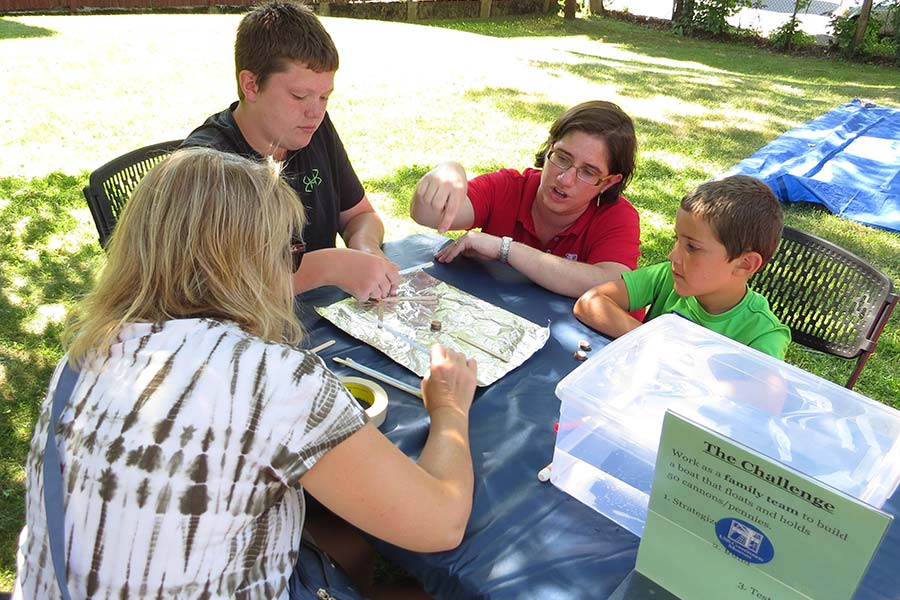Hiring and Supporting Facilitators
It is essential that facilitators equip adults with the tools they require to support their families. It is up to us to give the facilitators the tools and training they need to do so. Heather Nielsen describes the nimbleness, flexibility, and other skills successful facilitators require, as well as the types of backgrounds and training that make the best facilitators.
Model Facilitation During Training
If you want your facilitators to engage families in conversation and activity, don’t use a lecture format for training. Show them what you expect by modeling engaging facilitation for your new staff in the methods you choose for training.
Building Empathy During Training
Marianna Adams offers some specific methods you can use during training to build empathy for families from your facilitators and encourage them to think critically about the hidden messages you send to your participants.
Learning Together: Museum Staff Training Curriculum
Created by Boston Children’s Museum and Chicago Children’s Museum, this staff-training curriculum was designed for other museums to train their front-line staff to successfully facilitate family experiences that engage both children and adults. The curriculum features over 200 pages of activities and resources that support their ten “Standards of Engagement.” The flexible activities offer opportunities for reflection and discussion and the curriculum provides tips for how to lead effective training sessions.
Learning Together Museum Staff Training Curriculum
REVEAL Facilitation Training
“Researching the Value of Educator Actions for Learning (REVEAL) was a three-year, National Science Foundation(NSF)-funded research study carried out by the Oregon Museum of Science and Industry (OMSI) between 2013 and 2017. In collaboration with TERC and Oregon State University, the team explored the role of museum educators in deepening and extending family engagement and learning at interactive math exhibits. REVEAL built on the NSF-funded Access Algebra project, which created a large traveling exhibit, Design Zone, that capitalizes on visitors’ interest in design, engineering, art, and music to create engaging and memorable learning experiences with math.”
Learn more about the project, read more publications, and check out educator resources here.
